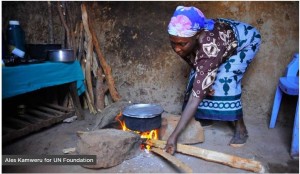Geneva, Tuesday 31 March 2015
What is REDD+?
REDD+ stands for countries’ efforts to reduce emissions from deforestation and forest degradation, and foster conservation, sustainable management of forests, and enhancement of forest carbon stocks.
Black carbon, seen as soot, is the unwanted byproduct of burning diesel, coal, firewood, or crop residue. It is categorised as a ‘short-lived’ climate pollutant but its negative impacts are both fast-acting and extensive—black carbon increases the melting of ice and glaciers, harms public health, reduces food security and disrupts weather patterns. With the reduction of carbon dioxide taking a priority under the Kyoto Protocol, mitigating short-lived climate pollutants, such as black carbon, have taken a back seat. However, recent studies show that black carbon may be responsible for close to 20% of the planet’s warming, making it the second highest contributor to climate change after carbon dioxide. This provides us with a real opportunity to make an immediate impact on climate change.
Woodfuel is a vital source of energy for an estimated two and a half billion people in developing countries. A recent study from Climate Focus highlights that woodfuel emissions are equivalent to around a quarter of gross emissions from deforestation and that these can be mitigated through a combination of supply and demand-side interventions.
Global Alliance for Clean Cookstoves (Alliance). Saving lives, improve livelihoods, empowering women, and protecting the environment by creating a thriving global market for clean and efficient household cooking solutions.

